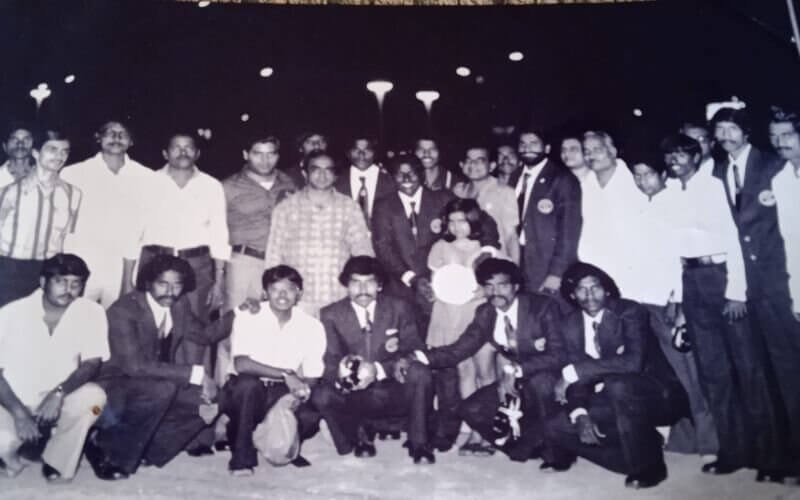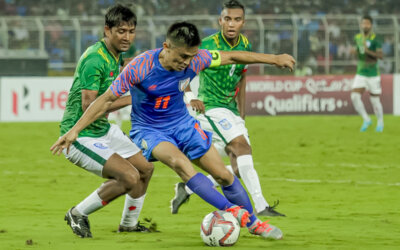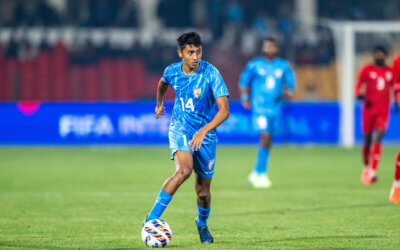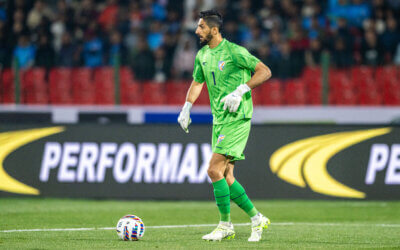AIFF Media Team
NEW DELHI: It wasn’t the best of times for Indian Football when the Senior Men’s National Team travelled to Bangkok in the last week of October 1977, to play the King’s Cup for the first time. Legendary former footballer Tulsidas Balaram, who was the chairman of the selection committee, had resigned prior to the team’s departure, alleging interference in the selection process during the Bangalore camp.
The controversy gained further momentum when the names of some of the regulars with the National Team were found missing from the list. Some felt the strength of the team was weakened by the absence of a few players in defence and attack.
On October 29, India were pitted against mighty South Korea in their first match of the round-robin meet. According to one of the team members, when the team bus reached the venue from the hotel, it was found that the vice-captain and one of the key midfielders, Prasun Banerjee, had been left behind. A car was sent to the hotel again and Banerjee arrived in the nick of time to take the field. Players were not happy with the development and the coach, Sahu Mewalal, had to intervene to defuse the situation.
The state of affairs certainly wasn’t ideal. Yet India played rousing football that surprised not only the spectators but also their rivals. On that night, India tamed ultimate champions South Korea by a solitary goal with a gem of a strike from Indian captain Gurdev Singh.
Some of the members of the 1977 squad still vow to say it was one of the finest goals they had witnessed on the pitch. Recalls Harjinder Singh, the crafty winger known for his bundle of skills. “It was early in the match. We earned a corner kick and I went up to take it. My corner was cleared from the box and reached Gurdev Singh, who had advanced from his left-back position. It was around 35 yards away from the goal. All of a sudden, Gurdev unleashed a left-footer that had the power of a missile and brooked no defence. It crashed against the net like a storm hitting the coast. South Koreans were truly stunned and so were we,” said Harjinder.
Gurdev, who retired as a senior officer of Punjab Police, laughed when reminded of the goal. “Yes, it was a powerful shot. I thought that as the captain, I had to set an example for my teammates. The confidence we gained from the victory in the opener carried us through the tournament and we never had to look back. We could have finished better, but a few mistakes and momentary lapses of concentration cost us dearly against Malaysia in the concluding match,” said Gurdev from his Jalandhar home.
Gurdev wasn’t far from the truth. India played inspiring football throughout the tournament. Forty-eight hours after the three-pointer against South Korea, the Blue Tigers held hosts Thailand to a 1-1 draw. Thereafter, India earned back-to-back wins against Singapore and Indonesia with identical 2-1 margins. In the final round-robin match, the form suddenly deserted the Indians and they lost 0-3 against Malaysia to finish third.
“Back in India, people were happy that we could achieve a podium finish in our maiden appearance in the King’s Cup. But we weren’t,” said Brahmanand Sankhwalkar, the team’s first-choice goalkeeper and an Arjuna and Padma Shri awardee.
“We played football of high standard and could have done better. The match against Malaysia spoiled our show. I know the Indian Team will travel to Thailand early next month to play the 49th King’s Cup. I am sure they will overshadow our performance and will corner bigger glory for India,” said the lanky former custodian from Goa.
The 1977 squad:
Goalkeepers: Brahmanand (Goa) and Victor Manjila (Kerala)
Defenders: Gurdev Singh (Captain), Sukhwinder Singh (both Punjab), Shymal Ghosh, (Bengal), Subir Chowdhury (Assam), CC Jacob (Kerala) and Orlando P Ryan (Railways)
Midfielders: Prasun Banerjee (Bengal), Devraj (Karnataka) and MM Jacob (Kerala)
Forwards: Harjinder Singh (Punjab), Surajit Sen Gupta, Bidesh Bose, Mohammed Akbar (all Bengal), Prakash Naik (Goa) and P Rajasekhar (Karnataka) Coach: Sahu Mewalal
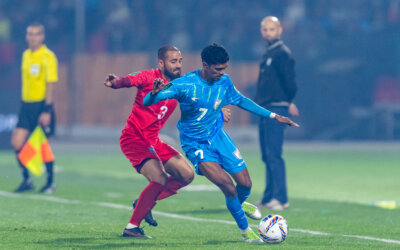

 Shop
Shop



